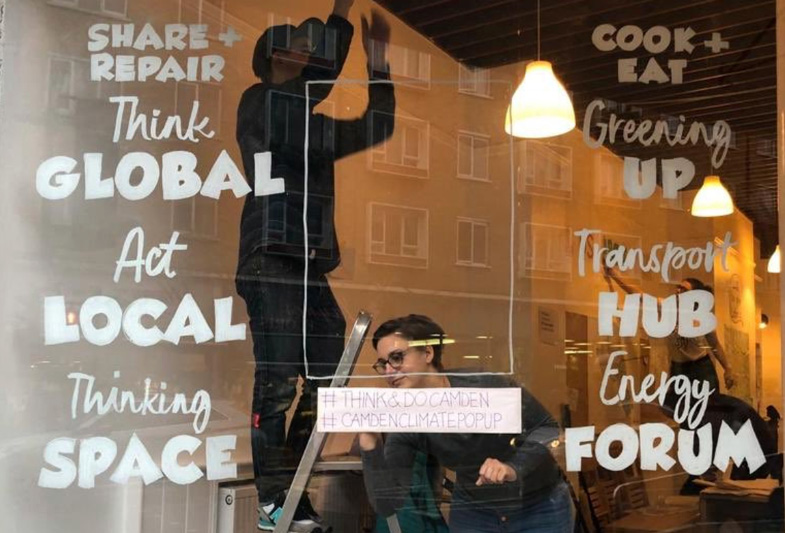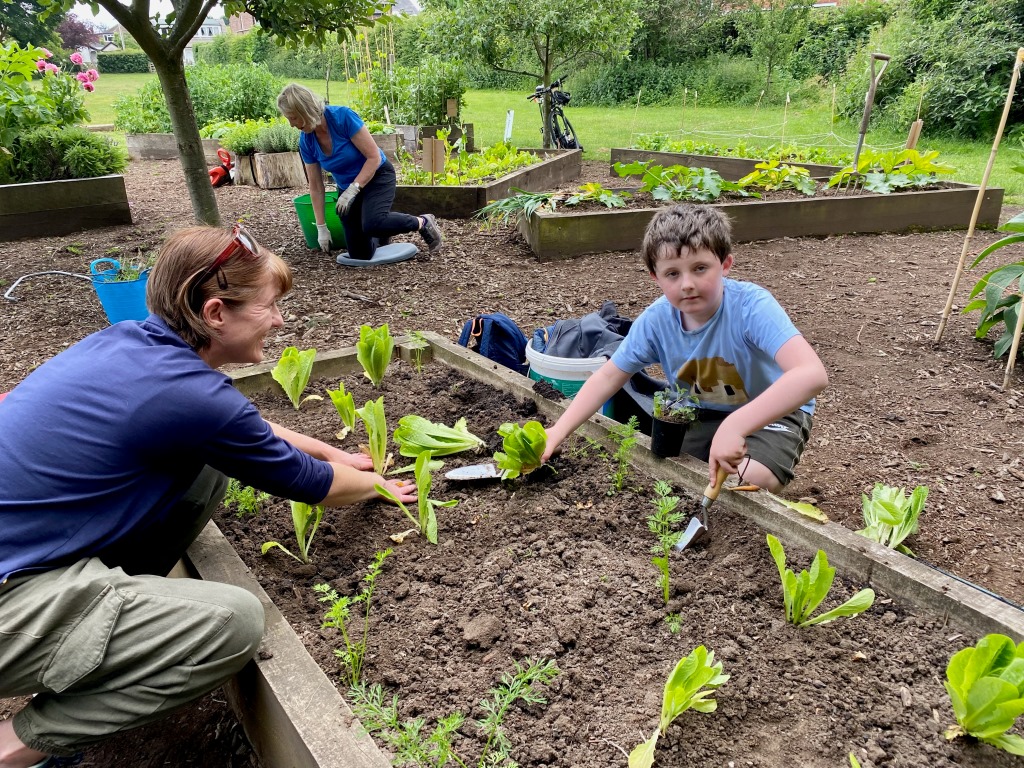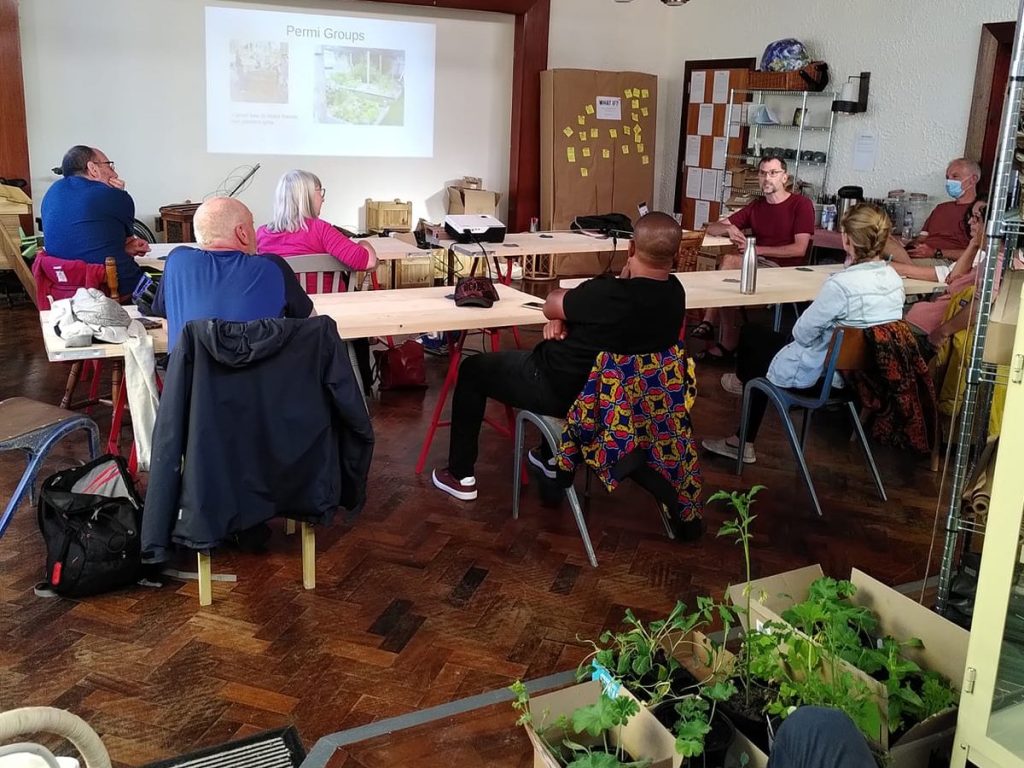Seed Funding goes live: From tiny seeds, Transition groups grow bountiful harvests

28 July 2022
8 minute read
We always knew it. Small seeds can lead to many, varied and bountiful crops in the hands of the Transition community! Almost 100 groups demonstrated it with the fruits of their labour and last year’s seed funding programme from Transition: Bounce Forward. Now, thanks to funding from the National Lottery Community Fund, we are launching a new round of funding available to Transition groups in England and Wales, and we’re bursting with excitement to see what you’ll do.
People based in their local community know their local conditions best, what’s most needed and what will grow well. Many Transition groups are entirely volunteer-run and people can be stretched. This programme is designed to give a targeted boost to help grow strong roots, build your capacity, increase your impact locally and do something that might otherwise be impossible.

Maybe you’ll use your grant to launch a new project like a climate emergency centre; to improve your community garden; to kickstart a local visioning conversation or for a fantastic event? Or it could help develop your group by supporting coordination or staff costs, help you build relationships and networks, or work in solidarity with marginalised communities. Perhaps you’ve always wanted to explore what a sustainable local economy might look like, and this grant could help create new livelihoods, a co-op or scope a social enterprise. Find out more below about how Transition groups used the last round of seed funding.
This seed funding programme acknowledges that the current crises we face are systemic and interconnected. We cannot solve climate change without listening to and centering the needs of those who have been most marginalised by our current economic, social and political systems. Similarly we can’t tackle social injustice and inequality without changing our relationship to land and nature. This approach is reflected in the criteria of this year’s programme with extra weight being given to projects that address social justice and build livelihoods, as part of creating a more just, green and sustainable world.
This year you can apply for 3 different types of grants:
- Micro Grants (£100-500) could cover small project costs such as a facilitator fee, zoom account, tools or travel.
- Full Grants (up to £5,000) could support you to develop a project, cover core staff costs or explore a community-led social enterprise.
- Partnership Grants (up to £10,000) support you to work in partnership with other Transition groups to achieve a shared goal, perhaps with a regional or a thematic focus.
Find out more and apply for our seed funding grants here.

What happened last time?
In the last round, £140,000 was distributed to support the work of 87 groups, between them carrying out 111 projects the length and breadth of England. It turned out that many of the projects helped Transition groups bring in new volunteers and energy. In fact, half of the 1,477 volunteers involved in delivering the projects got involved in Transition initiatives for the first time. Between them these projects reached a whopping 42,000 people – more than half of those taking part connected with Transition for the first time.
We loved the variety of approaches and ideas which emerged, all rooted in your knowledge and relationships locally – and that was key to their success.
Envisioning a better future
Many used the opportunity to start a conversation about how their community might emerge from the pandemic stronger and more resilient, helping people see the possibilities of a better future despite the challenging present. Building on our visioning toolkit, the funds allowed groups to find new and creative ways to do this, and make space for new voices in the conversation.
In Camden, Transition Kentish Town opened a Pop Up Think and Do community imagination space, pictured above, where people shared ideas and meals of surplus food. In Belper, Idea Trees popped up across town and loads of ‘What If?’ ideas were turned into plans to make change. Transition Buxton was able to bring in an artist to help capture the community’s ideas and visualise what could be.
Groups also focused on building new relationships within their communities and amplifying voices often marginalised or underrepresented in consultation processes, such as the Bangladeshi community in St Albans or Black communities in Brixton. Transition Southampton started ‘What if?’ conversations in three neighbourhoods seldom heard by decision-makers, making these beautiful videos.
Building capacity
It doesn’t always have to be a cutting-edge new project – sometimes a small injection of cash helps a group work better or gives a breathing space that makes all the difference between a group or initiative unravelling and being there to build another day.
This was particularly important in the context of the pandemic, which presented many challenges for groups such as loss of capacity in the core team, income or familiar ways of working. Some groups used a grant to cover a Zoom subscription, for example, to allow them to keep operating during lockdown. This may not seem a glamorous thing to fund. However, building resilience within the core of our groups has enabled them to survive shocks, sustain their excellent work and is crucial movement building work.
As Transition Town Worthing highlighted: “This grant was an absolute life-saver! We literally could not have continued to operate without it, which would have been tragic as we do so much good work in our community … and are part of the glue that holds it together.” They have been able to rise again, repopulating their community allotment volunteer team, restarting a repair café and helping form a new sustainable market in the town.

The funding also helped a number of new groups to get started or relaunch after a period of inactivity. One of those was Transition Teesside, who wanted to embed social justice and anti-racism right from the inception of their group, so used their £500 to run a workshop series on diversity and inclusion, bringing together a wide range of people and speakers from different parts of their community to discuss issues such as food poverty and climate change.
Sustainable local economies
Whether it be setting up a ‘library of things’ to encourage borrowing, sharing and reuse of items in Exmouth; growing fresh, local food for community food banks in Dorchester, or establishing a network of new community gardens in Wilmslow, many groups used last year’s seed funding to contribute to building more resilient, just and sustainable local economies.
In Guildford and Manchester, the funding supported new community spaces for people to come together to take action on the climate emergency; in Belper it helped get a new mobile solar power station off the ground. In Bolton it helped run a programme of events and workshops to share learning and best practice between social enterprises, coops and small producers within the North West and in New Mills in Derbyshire people came together through food to explore the development of local bread making and wheat growing at an old mill in their town.
Get inspired – get involved
In the coming weeks, we’ll be sharing more brilliant stories of the impact these grants can make to Transition groups, to help seed your own ideas. There is loads of practical advice about applying here.
We hope these seed funding grants will enable groups to work with their community to reimagine and rebuild more a socially just, resilient and environmentally sustainable future. Together, we are doing vital work to build the alternative to what’s not working now, to help people find a positive vision of the future of their communities and inviting them to get involved in practical action to make it a reality.
Applications will be open until 31 October 2022, to give groups plenty of time to dream and scheme. Between now and then, we’re offering a number of events to support you to make the best application you possibly can:
- Save the date: 21 September – Blizzard of Stories Seed Funding Special! Hear more from some of the groups who did great things last time. Register here.
- On 13 October, join an Ask the Team webinar to support you help you finalise your ideas and make your application. Details here.
- This autumn, we are rolling out two training programmes to help groups Launch and Thrive. These workshops will help new and established groups to vision, plan, broaden their reach and get the skills and confidence to run successful community projects. Find out more here.
We really can’t wait to see what fruits will grow from these seeds you will plant this year. So now’s the time to get together with your groups and ask ‘what if?’ Explore what you could unlock in your work and your local community with a little extra resource.
Visit our seed funding webpage here for more details.